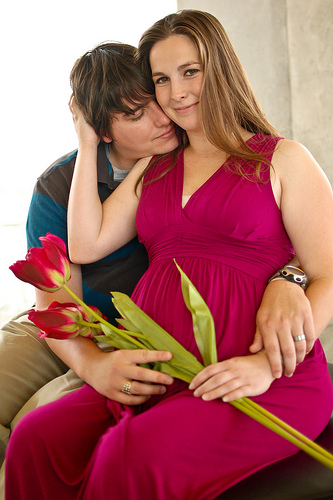Forgiveness is not an occasional act, it is a constant attitude. – Martin Luther King Jr.

In my experience, when asking forgiveness, a little gift helps. Flowers, as seen in the picture, are an example.
What does that mean?
To forgive is defined at theFreeDictionary.com as “To excuse for a fault or an offense; pardon.” or “To renounce anger or resentment against.” This quote urges us not to just engage in this great act of compassion on a rare occasions, but to make it a constant attitude.
By making this state of forgiveness, and the willingness to forgive others, a constant attitude, we are of the mindset to forgive more easily, more frequently, and more profoundly. Forgiveness, like any other activity, responds well to repetition. The more often we do it, the easier it becomes, until it becomes second nature, a constant attitude.
Why is forgiveness important?
Let’s start with the antonym. What’s the opposite of forgiveness? Some common ones include: blame, condemn, and reproach. What if you lived your life with those three as your constant attitude, your default action? How pleasant a person to be around would you be? How many friends would you have? How much fun would you be able to have with that kind of attitude?
If forgiveness was your constant attitude and your default action, how much more pleasant a person to be around would you be? How many more friends would you have, compared to the person in the prior paragraph? Most importantly, how much better would your life be? How much more fun would you be able to have? How much more peace of mind would you have? Which of the two people would you rather be?
Where can I apply this in my life?
Think hard and try to remember the last three things for which you forgave someone. If forgiveness is your constant attitude, your default action, you should have little difficulty finding three things. If you’re like me, and still working on making forgiveness your constant attitude, it might take a little longer.
Take a moment and consider why it took so long, or so little, time to come up with a list. Some of you may have become so good at forgiving others that it rarely crosses your mind that someone had offended you so greatly that you needed to forgive them. If that is the case, congratulations!
For the rest of us, we either notice, and then forgive quickly, or we notice and then hold a grudge for a long time, before finally forgiving the other person. I’m still working my way from the former to the latter, but would like to think that I’m getting better at it every day.
Take a few moments and think about a few events that happened where you have yet to forgive the other person. Grab some paper and write them down. Somewhere between three and five would be nice. If you have more, pick the most serious offenses and put a mark next to them.
Now consider why you are still holding a grudge. Was it because the other person started it? Is the other person being unreasonable? Do you think they did it on purpose, or with malice in their heart? Write these reasons down next to each event you have yet to forgive.
Take a moment and think about what it would take to allow you to forgive them? What would they have to do? Would a private apology be sufficient, or would it have to be public? Would you require restitution of some sort? What would have to happen to get them back in your good graces. Write that down as well, next to each event.
I would like you to consider what you might lose if you gave them forgiveness. Would you feel like you were giving in? Would you feel like they got away with something? Would you feel slighted or less of a person for not having stood up to them? Write that down as well, next to each event.
Take a moment and think about what you might gain if you were to grant forgiveness, either by meeting them part of the way, or granting full forgiveness. Would you get a friend back? Would you get some of your time and energy back, time and energy not spent planning revenge or reliving the indignity of the offense? Would you gain peace of mind, to have the incident behind you?
To forgive, or not to forgive. Only you can make the decision. Only you can weigh the options and come to a conclusion. I would ask that you consider opening your heart and releasing the hurt and anger, and allow hope and love to take their place.
While we have focused on the granting of forgiveness, you can also ask for forgiveness, and you can accept forgiveness from others. Each has it’s place, and each can help you smooth things over with others. I hope you can make forgiveness a constant attitude in your life.
From: Twitter, @HamiltonAnthony
confirmed at : http://yolandayvette.hubpages.com/hub/25-Quotes-By-Martin-Luther-King-Jr – It’s the second quote, but they’re all worthy of your time.
Photo by nanny snowflake
